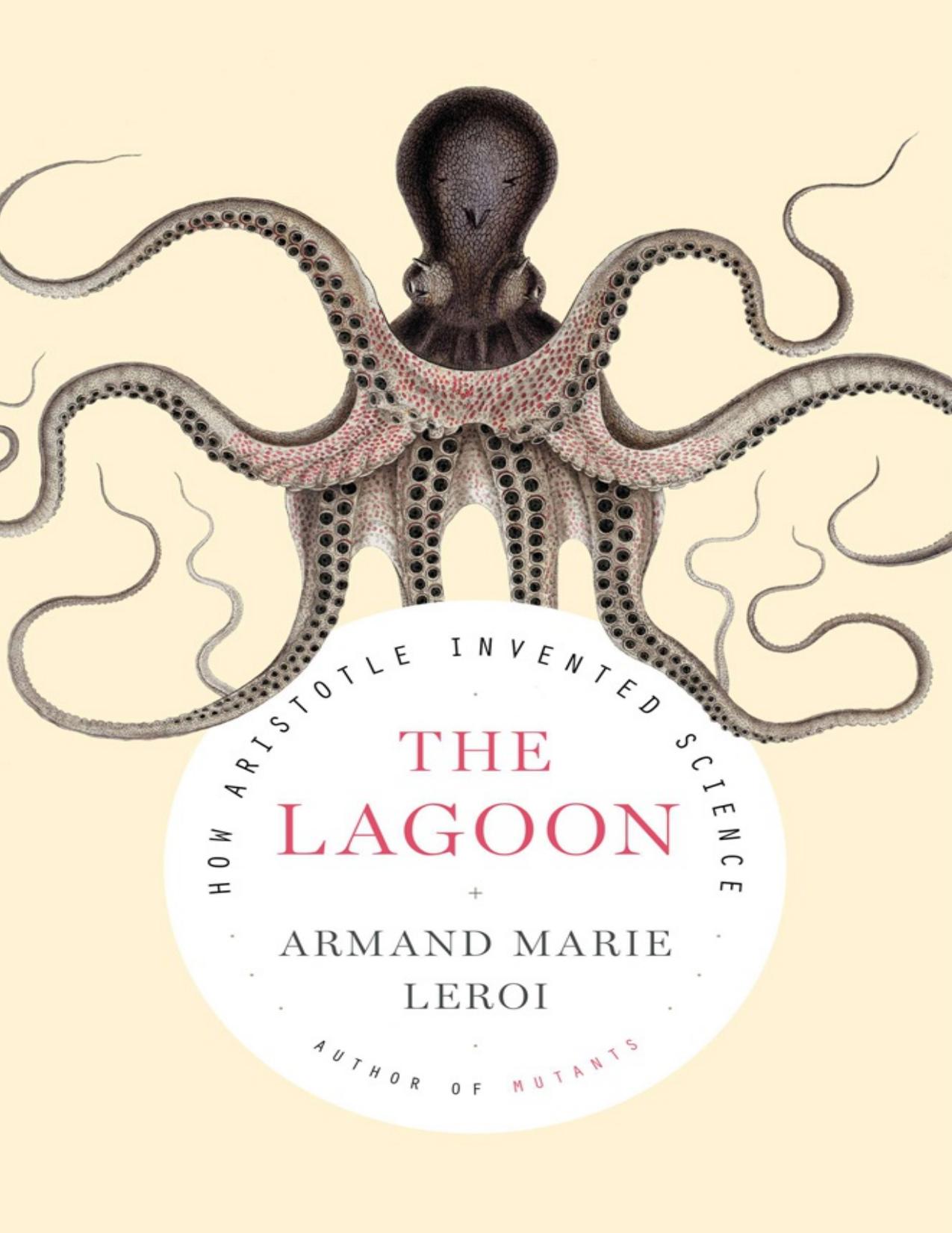The Lagoon by Armand Marie Leroi

Author:Armand Marie Leroi [Leroi, Armand Marie]
Language: eng
Format: epub, mobi, pdf
Publisher: Penguin Group US
Published: 2014-09-27T21:00:00+00:00
XCIII
ARISTOTLE NEVER MADE the evolutionary leap. Of course he didn’t. After all, he did not stand, as Darwin did, on the shoulders of Linnaeus, Buffon, Goethe, Cuvier, Geoffroy, Grant and Lyell. He heard no transformist whisperings from Paris and Edinburgh. He saw neither the mockingbirds of the Galapagos nor the fossilized giants of the Argentinian pampas. That he had the materials for an evolutionary theory at hand is, of course, evident only in hindsight. We may read Aristotle in Darwin, but not Darwin in Aristotle. By the same token Aristotle’s system cannot be anti-Darwinian. His opponents were the physiologoi and Plato, none of whom were evolutionists in the Darwinian sense. Many of them were, however, evolutionists in a much looser sense for they gave naturalistic accounts of the origin or transformation of species. Aristotle, radically, rejected them all.
Creationism and evolution are rivalrous siblings. Both propose that the past was a very different place. Both propose that the creatures that we see in the world were not always there but have an origin in time. In the Greeks it’s not always easy to tell them apart. The physiologoi may have rejected the myths but, as I said, the divine can often be found lurking somewhere in their thought. Xenophanes of Colophon (fl. 525 BC) is said to have argued that all living creatures originate from earth and water, though we don’t know how he got them to do so. We know Empedocles’ zoogony in confusing detail. First, there are those separated body parts, then their fusion into various improbable forms, then the selection process and, finally, the survivors sort themselves out by habitat. Democritus, too, evidently gave a naturalistic zoogony, but we know nothing about how it worked except that it ran on atoms.
The Pre-Socratic zoogonies are not, usually, transformist. Empedocles’ creatures, having acquired their features, stick with them. But Anaximander of Miletus (fl. 525 BC) appears to have believed that humans are related to fish. The sources disagree how. One says that Anaximander held that humans originally resembled fish, another that humans arose from fish; another that they were born from a galeos. That may be a reference to the smooth dogfish, Aristotle’s leios galeos, which nurtures its embryos in the womb via a placenta and umbilical cord and then gives birth to pups.
And then there is The Timaeus. Let us, for just a moment, treat Plato’s origin myth with the seriousness that it doesn’t deserve. Animals are degenerate humans. The gods transformed the silly, if harmless, men who studied the heavens (astronomers) into birds. Men who used their hearts rather than their heads became land animals: their forelimbs were drawn to earth; their heads deformed for lack of use. Truly stupid men acquired earth-bound bodies and many legs (centipedes?); the utterly thick were made legless (snakes or worms). Vicious men plumbed greater depths. Unworthy of breathing air, they were condemned to live as fish and snails in the muddy waters. Or else they became women.
Anaximander derives humans from fish, Plato fish from humans.
Download
The Lagoon by Armand Marie Leroi.epub
The Lagoon by Armand Marie Leroi.epub
The Lagoon by Armand Marie Leroi.mobi
The Lagoon by Armand Marie Leroi.pdf
This site does not store any files on its server. We only index and link to content provided by other sites. Please contact the content providers to delete copyright contents if any and email us, we'll remove relevant links or contents immediately.
| Anatomy | Animals |
| Bacteriology | Biochemistry |
| Bioelectricity | Bioinformatics |
| Biology | Biophysics |
| Biotechnology | Botany |
| Ecology | Genetics |
| Paleontology | Plants |
| Taxonomic Classification | Zoology |
Sapiens: A Brief History of Humankind by Yuval Noah Harari(14358)
The Tidewater Tales by John Barth(12647)
Mastermind: How to Think Like Sherlock Holmes by Maria Konnikova(7313)
Do No Harm Stories of Life, Death and Brain Surgery by Henry Marsh(6931)
The Thirst by Nesbo Jo(6921)
Why We Sleep: Unlocking the Power of Sleep and Dreams by Matthew Walker(6694)
Life 3.0: Being Human in the Age of Artificial Intelligence by Tegmark Max(5541)
Sapiens by Yuval Noah Harari(5363)
The Body: A Guide for Occupants by Bill Bryson(5075)
The Longevity Diet by Valter Longo(5057)
The Rules Do Not Apply by Ariel Levy(4953)
The Immortal Life of Henrietta Lacks by Rebecca Skloot(4571)
Animal Frequency by Melissa Alvarez(4457)
Why We Sleep by Matthew Walker(4432)
The Hacking of the American Mind by Robert H. Lustig(4368)
Yoga Anatomy by Kaminoff Leslie(4353)
All Creatures Great and Small by James Herriot(4304)
Double Down (Diary of a Wimpy Kid Book 11) by Jeff Kinney(4257)
Embedded Programming with Modern C++ Cookbook by Igor Viarheichyk(4170)
